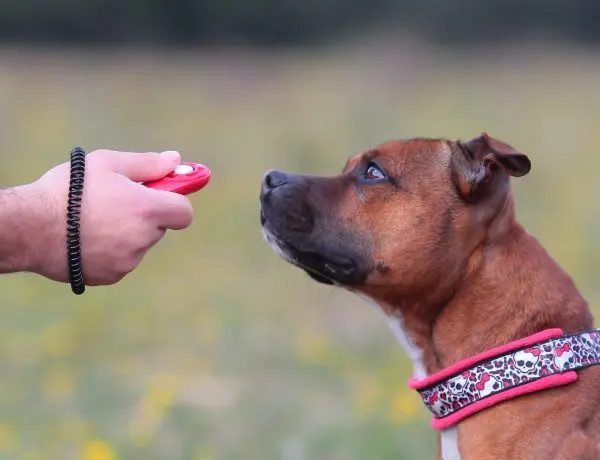So you have decided that it is time to bring a new dog into your home, and decided on getting a Boston Terrier. I think that is an excellent choice!
But which is better, should you get a male or a female Boston Terrier? Having had one for 13 years myself, let me share some insight I have learned along the way.
Some people out there believe that one sex is better than the other sex, or that one may be more fun-loving or have a more agreeable personality. They may think that one is more protective or aggressive than the other, or one may be more affectionate and people-pleasing than the other.
Realistically, when it comes to Boston Terrier puppies or dogs, there is not a sex that is superior to the other. The qualities listed above are anecdotal observations made by some dog owners about their Bostons. There has not been any scientific study at all, that I could find, that proved any portion of the validity of the above-stated observations in any generalized fashion.
There are differences between male and female Boston Terriers that may convince you one way or another to either get a male or to get a female instead. Deciding which is best for you and your home is invariably important.
However, personality quirks you may have read about should not be the deciding factor, or you may end up with a Boston that doesn’t fit you, or your household as well as you had hoped.
Boston Terriers: Male versus Female, what’s the difference?
Boston Terriers are typically an amiable and lively dog.
Many have referred to them as the “American Gentleman” and are said to be quite dapper – after all, they always come dressed in their tuxedo!
Physical Attributes

Physically, besides the apparent organ difference, there isn’t too much difference between a male and a female Boston Terrier. And realistically, if you are going to get one as a pet that is spayed or neutered, it does not make much difference.
In most breeds, the females tend to be slightly smaller than the males, but not always so with Bostons. Size-wise between the male and female, the only discernible difference is that the females should have a slight refinement in their conformation.
According to the Boston Terrier Club of America, they divide the Boston Terriers up by weight rather than height. Their class divisions are:
- Under 15 pounds
- 15 pounds and under 20 pounds
- 20 pounds and not to exceed 25 pounds.
So typically, male or female, the Boston Terrier can weigh anywhere between 10 to 25 pounds. The rest of their frame should determine what that particular dog’s healthy weight is. They should never appear to be overweight or “chunky.”
Going back to the obvious “organ difference” I mentioned above, there are a few other things to consider. Female Boston Terriers come into heat, or estrus, typically two times per year, starting around the time they are six months to one year old.
Their cycle will last around two weeks on most occasions, but will rarely last as long as three weeks.
If you don’t want to breed your Boston during this time (which I would HIGHLY suggest against it unless she is at least two years old!), you will have to keep a watchful eye on her.
You will want to keep her isolated from any male dogs and put away in an area where she is alone or with other females when you are unable to keep a close eye on her.
Something else to consider is that when they are in heat, females will produce a bloody vaginal secretion – Not only are male dogs highly lured by this, but it can also make a mess on your floors or stain your carpet.
Another option if you want, would be to get some “Dog Panties” or “Female Dog Diapers,” whichever you choose to call them by, they are relatively the same thing. They are much more comfortable for the dog since they are made for them, rather than using regular disposable diapers as some people have inclinations do.
Using these may help to alleviate some of the mess from getting on your floors.
You will still need to be mindful of her and any other dogs around her.
If you get a female Boston Terrier that is spayed or are planning on getting her spayed, then this wouldn’t be a potential problem you need to concern yourself over.
I’m not advocating either way; whether you do or do not get your female spayed is entirely up to you and what is best for your dog. I do, however, advocate against unwanted or unplanned litters. Responsible breeding is crucial. Puppies having a loving and caring home to go to is even more so.
Mental and Behavioral Differences
The temperament of Boston Terriers are reasonably predictable, they are:
- Kind
- Gentle
- Personable
- Affectionate
- Loving
- Smart
The personality they display and how they are characterized has a lot to do with the fashion in which they were raised and the environment they were brought up in – That being said, they are not too dissimilar from humans.
Whether you want your Boston puppy to grow up to be more affectionate or more aggressive will almost entirely be dependent upon the methods and the amount you train them while they are young.
While ultimately, the behavior of the Boston Terrier is undoubtedly influenced by the training, the sex of the Boston Terrier may dictate its speed and ability to learn from the instruction given. Female Boston Terriers tend to reach maturity a little faster than males do – much like with people.
Being more mature can often lead to an advantage during training due to them having more of a willingness to learn and getting distracted less easily. It does not mean that female Boston Terriers are any more intelligent than their male equivalents at all. It just simply means that the females may catch on a little faster, and have more of a willingness to learn, because of the maturity level they have in relation to their male counterparts.

Male Boston Terriers, neutered or not neutered, have a tendency to want to ‘mark’ their territory. It may take a bit of extra training to make sure you break your dog of applying that habit inside your house, but I would be sure you get on it promptly.
The earlier you educate them that it is not desirable behavior, the better. Waiting until they are older to put a stop to this behavior could prove to be much more taxing on you than if you did so while they were younger.
As far as “performing embarrassing acts” or “lewd-behavior” on stuffed animals or unsuspecting people when they come over to visit, that might be because they are over-sexed and could occur with male and female Bostons alike.
Spaying or neutering tends to help lessen this occurrence, but letting them know it is unacceptable behavior, and being consistent in training, can mitigate it as well.
When you are looking at getting a Boston from a breeder, females will typically be more costly or more difficult to obtain; males frequently are less difficult to find. If you are getting your Boston from a rescue (it will usually be spayed or neutered before you adopt it), the cost will often be the same for either gender. However, gender should not be your primary goal. You should see which Boston they have available that is more the type of personality you are looking for.
While many believe that male Boston Terriers tend to be much more loving and kind, and females tend to be more protective, distant, or “bitchy,” I have not found anything to suggest that it is a legitimate generalization in this breed.
Remember that every Boston will have a different personality and like various things.
Some will be more excited than others, and some will want to cuddle more than others.
Either sex in this breed has a great temperament and personality if you raise them well and teach them properly.
I have heard many discussions where people would talk about how males were one way, and females were another; many others where someone declared the exact opposite.
My BEST piece of advice to you?
Meet the dog!
You’re talking to the breeder anyway, or going to the rescue to pick up a Boston Terrier.
Meet them! Look at their personalities, determine which one is the most suitable fit for you and your household!




